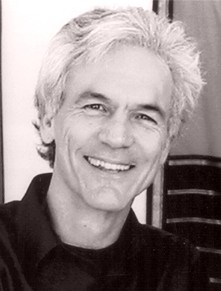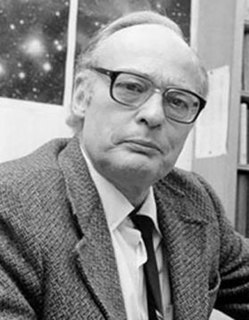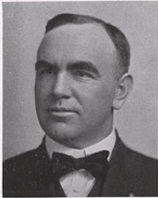A Quote by Brian Swimme
This is the greatest discovery of the scientific enterprise: You take hydrogen gas, and you leave it alone, and it turns into rosebuds, giraffes and humans.
Related Quotes
It is high time that laymen abandoned the misleading belief that scientific enquiry is a cold dispassionate enterprise, bleached of imaginative qualities, and that a scientist is a man who turns the handle of discovery; for at every level of endeavour scientific research is a passionate undertaking and the Promotion of Natural Knowledge depends above all on a sortee into what can be imagined but is not yet known.
So the history of discovery, particularly cosmic discovery, but discovery in general, scientific discovery, is one where at any given moment, there's a frontier. And there tends to be an urge for people, especially religious people, to assert that across that boundary, into the unknown, lies the handiwork of God. This shows up a lot.
The brief relief of seeing other people when I leave my room turns into a desperate need to be alone, and then being alone turns into a terrible fear that I will have no friends, I will be alone in this world and in my life. I will eventually be so crazy from this black wave, which seems to be taking over my head with increasing frequency, that one day I will just kill myself, not for any great, thoughtful existential reasons, but because I need immediate relief.
Carbon dioxide is unusual because it doesn't go through the usual three phases of matter, from solid to liquid to gas, but it goes straight from solid to gas. The volume of the gas is much greater than the volume of the solid. When a solid turns into a gas, we say it sublimes. The process is sublimation.
The routine of custom tends to deaden even scientific inquiry; it stands in the way of discovery and of the active scientific worker. For discovery and inquiry are synonymous as an occupation. Science is a pursuit, not a coming into possession of the immutable; new theories as points of view are more prized than discoveries that quantitatively increase the store on hand.
What struck me most in England was the perception that only those works which have a practical tendency awake attention and command respect, while the purely scientific, which possess far greater merit are almost unknown. And yet the latter are the proper source from which the others flow. Practice alone can never lead to the discovery of a truth or a principle. In Germany it is quite the contrary. Here in the eyes of scientific men no value, or at least but a trifling one, is placed upon the practical results. The enrichment of science is alone considered worthy attention.































